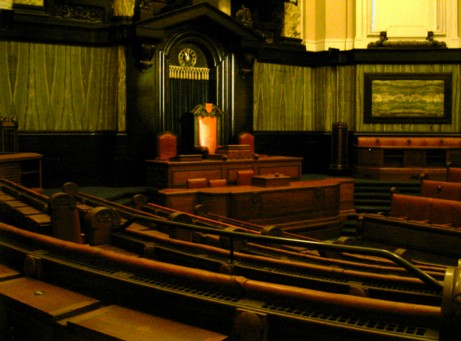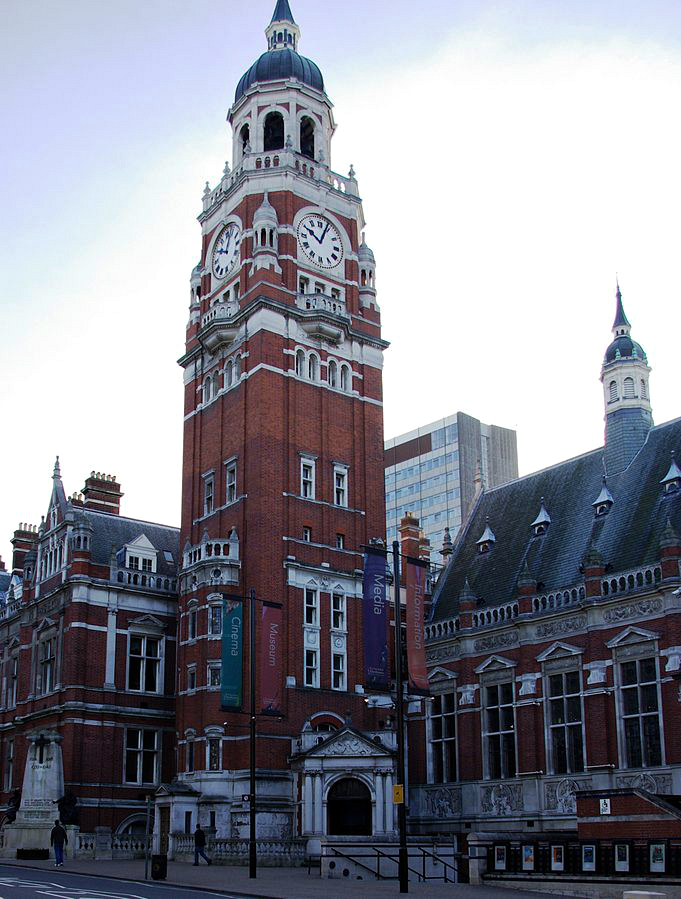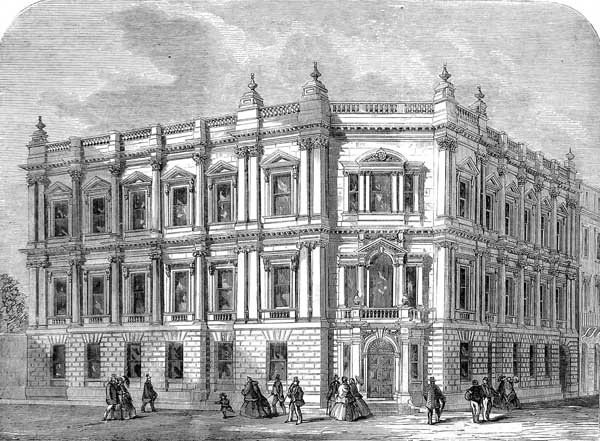|
Croydon Central (electoral Division)
Croydon Central was an electoral division for the purposes of elections to the Greater London Council. The constituency elected one councillor for a four-year term in 1973, 1977 and 1981, with the final term extended for an extra year ahead of the abolition of the Greater London Council. History It was planned to use the same boundaries as the Westminster Parliament constituencies for election of councillors to the Greater London Council (GLC), as had been the practice for elections to the predecessor London County Council, but those that existed in 1965 crossed the Greater London boundary. Until new constituencies could be settled, the 32 London boroughs were used as electoral areas. The London Borough of Croydon formed the Croydon electoral division. This was used for the Greater London Council elections in 1964, 1967 and 1970. The new constituencies were settled following the Second Periodic Review of Westminster constituencies and the new electoral division matched the boun ... [...More Info...] [...Related Items...] OR: [Wikipedia] [Google] [Baidu] |
Greater London Council
The Greater London Council (GLC) was the top-tier local government administrative body for Greater London from 1965 to 1986. It replaced the earlier London County Council (LCC) which had covered a much smaller area. The GLC was dissolved in 1986 by the Local Government Act 1985 and its powers were devolved to the London boroughs and other entities. A new administrative body, known as the Greater London Authority (GLA), was established in 2000. Background In 1957 a Royal Commission on Local Government in Greater London had been set up under Edwin Herbert, Baron Tangley, Sir Edwin Herbert to consider the local government arrangements in the London area. It reported in 1960, recommending the creation of 52 new London boroughs as the basis for local government. It further recommended that the LCC be replaced by a weaker strategic authority, with responsibility for public transport, road schemes, housing development and regeneration. The Greater London Group, a research centre of ac ... [...More Info...] [...Related Items...] OR: [Wikipedia] [Google] [Baidu] |
London Borough Of Croydon
The London Borough of Croydon () is a London borough, borough in South London, part of Outer London. It covers an area of and had a population of 397,741 as of mid-2023, making it the most populous London borough. It is London's southernmost borough. At its centre is the town of Croydon, from which the borough takes its name, while other Urban area, urban centres include Thornton Heath, Coulsdon, Purley, London, Purley, South Norwood, Norbury, New Addington, and Selsdon. Croydon is mentioned in the Domesday Book, and developed from a small market town into one of the most populous towns on the outskirts of London. The borough is now a significant business and cultural centre outside central London. Its contributions to entertainment and the arts have helped it gain recognition as a Metropolitan area, metropolitan centre. The borough was formed in 1965 from the merger of the County Borough of Croydon with Coulsdon and Purley Urban District, both of which had been in Surrey. Th ... [...More Info...] [...Related Items...] OR: [Wikipedia] [Google] [Baidu] |
Croydon (electoral Division)
Croydon was an electoral division for the purposes of elections to the Greater London Council. The constituency elected four councillors for a three-year term in 1964, 1967 and 1970. History It was planned to use the same boundaries as the Westminster Parliament constituencies for election of councillors to the Greater London Council (GLC), as had been the practice for elections to the predecessor London County Council, but those that existed in 1965 crossed the Greater London boundary. Until new constituencies could be settled, the 32 London boroughs were used as electoral areas which therefore created a constituency called Croydon. The boundaries of the electoral division were adjusted on 1 April 1969. The electoral division was replaced from 1973 by the single-member electoral divisions of Croydon Central, Croydon North East, Croydon North West and Croydon South. Elections The Croydon constituency was used for the Greater London Council elections in 1964, 1967 and 1970. F ... [...More Info...] [...Related Items...] OR: [Wikipedia] [Google] [Baidu] |
London County Council
The London County Council (LCC) was the principal local government body for the County of London throughout its existence from 1889 to 1965, and the first London-wide general municipal authority to be directly elected. It covered the area today known as Inner London and was replaced by the Greater London Council. The LCC was the largest, most significant and most ambitious English municipal authority of its day. History By the 19th century, the City of London Corporation covered only a small fraction of the metropolis. From 1855, the Metropolitan Board of Works (MBW) had certain powers across what is now Inner London, but it was appointed rather than elected. Many powers remained in the hands of traditional bodies such as parishes and the counties of Middlesex, Surrey, and Kent. The Local Government Act 1888 created a new County of London, with effect from 1889, and the English County council#England, county councils, of which LCC was one. This followed a succession of scandal ... [...More Info...] [...Related Items...] OR: [Wikipedia] [Google] [Baidu] |
Croydon Central (UK Parliament Constituency)
Croydon Central was a United Kingdom constituencies, constituency created in 1974 and represented in the House of Commons of the United Kingdom, House of Commons of the UK Parliament of the United Kingdom, Parliament from 2017 until its abolition for the 2024 United Kingdom general election, 2024 general election by Labour Party (UK), Labour MP Sarah Jones (politician), Sarah Jones. The seat bucked the trend in national results in 2019, with Labour holding the seat with a slightly increased majority. Under the 2023 Periodic Review of Westminster constituencies, the majority of the constituency was incorporated into the re-established seat of Croydon East (UK Parliament constituency), Croydon East. Croydon town centre was included in the re-established seat of Croydon West (UK Parliament constituency), Croydon West. Constituency profile Croydon Central covered a wedge of the London Borough of Croydon to the east of central Croydon and was much more marginal seat, marginal than ... [...More Info...] [...Related Items...] OR: [Wikipedia] [Google] [Baidu] |
1973 Greater London Council Election
Events January * January 1 – The United Kingdom, the Republic of Ireland and Denmark enter the European Economic Community, which later becomes the European Union. * January 14 - The 16-0 Miami Dolphins defeated the Washington Redskins in Super Bowl VII, with the Dolphins ending the season a perfect 17-0. This marked the first and only time that an NFL team has had a perfect undefeated season, an achievement the team holds to this day. * January 15 – Vietnam War: Citing progress in peace negotiations, U.S. President Richard Nixon announces the suspension of offensive action in North Vietnam. * January 17 – Ferdinand Marcos becomes President for Life of the Philippines. * January 22 ** ''Joe Frazier vs. George Foreman, The Sunshine Showdown'': George Foreman defeats Joe Frazier to win the heavyweight world boxing championship in Kingston, Jamaica. ** A Royal Jordanian Boeing 707 flight from Jeddah 1973 Kano Nigeria Airways Boeing 707 crash, crashes in Kano (city ... [...More Info...] [...Related Items...] OR: [Wikipedia] [Google] [Baidu] |
1977 Greater London Council Election
The fifth election to the Greater London Council (GLC) was held on 5 May 1977. The Conservatives, led by Horace Cutler, gained control of the council from Labour. Electoral arrangements The GLC was elected from 92 single-member electoral divisions which were identical with the Parliamentary constituencies in Greater London. The election date was fixed by section 43 of the Local Government Act 1972 as the first Thursday in May. Councillors had been elected for a three-year term at previous elections, with those elected in 1973 having their terms extended to four years in 1976. From the 1977 election councillors were elected for a four-year term. All aldermen went out of office in 1977 and no further aldermen were elected by the council. Results The Conservative Party won a majority of seats at the election. The Liberal Party lost both of its councillors. Turnout: 2,242,064 people voted. Constituency results Members of the old council* Barking Barnet ... [...More Info...] [...Related Items...] OR: [Wikipedia] [Google] [Baidu] |
1981 Greater London Council Election
The sixth election to the Greater London Council (GLC) was held on 7 May 1981. Following the election Andrew McIntosh the leader of the Labour Group was replaced by Ken Livingstone, a member of the party's left-wing. This was the last election to the GLC. The Conservative government of Margaret Thatcher soon decided to abolish the council in the mid-1980s. Following the abolition of the GLC, there was a direct election to the Inner London Education Authority in 1986. Electoral arrangements The GLC was elected from 92 single-member electoral divisions which were identical with the Parliamentary constituencies in Greater London. The election date was fixed by section 43 of the Local Government Act 1972 as the first Thursday in May. Councillors were elected for a four-year term. This was extended for an extra year in 1984 when the elections that had been scheduled for 1985 were cancelled. Results The leader of the Labour GLC group Andrew McIntosh led the party into the electio ... [...More Info...] [...Related Items...] OR: [Wikipedia] [Google] [Baidu] |
First-past-the-post
First-past-the-post (FPTP)—also called choose-one, first-preference plurality (FPP), or simply plurality—is a single-winner voting rule. Voters mark one candidate as their favorite, or First-preference votes, first-preference, and the candidate with more first-preference votes than any other candidate (a Plurality (voting), ''plurality'') is elected, even if they do not have more than half of votes (a ''majority''). FPP has been used to elect part of the House of Commons of the United Kingdom, British House of Commons since the Middle Ages before spreading throughout the British Empire. Throughout the 20th century, many countries that previously used FPP have abandoned it in favor of other electoral systems, including the former British colonies of Australia and New Zealand. FPP is still De jure, officially used in the majority of U.S. state, US states for most elections. However, the combination of Partisan primary, partisan primaries and a two-party system in these jurisd ... [...More Info...] [...Related Items...] OR: [Wikipedia] [Google] [Baidu] |
1980 Croydon North East By-election
Croydon North East was an electoral division for the purposes of elections to the Greater London Council. The constituency elected one councillor for a four-year term in 1973, 1977 and 1981, with the final term extended for an extra year ahead of the abolition of the Greater London Council. History It was planned to use the same boundaries as the Westminster Parliament constituencies for election of councillors to the Greater London Council (GLC), as had been the practice for elections to the predecessor London County Council, but those that existed in 1965 crossed the Greater London boundary. Until new constituencies could be settled, the 32 London boroughs were used as electoral areas. The London Borough of Croydon formed the Croydon electoral division. This was used for the Greater London Council elections in 1964, 1967 and 1970. The new constituencies were settled following the Second Periodic Review of Westminster constituencies and the new electoral division matched the b ... [...More Info...] [...Related Items...] OR: [Wikipedia] [Google] [Baidu] |
Robert Hughes (Conservative Politician)
Robert Gurth Hughes (born 14 July 1951) is a British Conservative Party politician, who was a Government Minister in the 1990s. Parliamentary career Hughes was unsuccessful as a candidate for Stepney and Poplar in the 1979 general election. In 1980 Hughes was elected to the Greater London Council representing Croydon Central, serving until 1986. He was the Conservative candidate in the 1983 Bermondsey by-election and contested that constituency's successor seat of Southwark and Bermondsey at the 1983 general election. In 1987 he was elected as the Member of Parliament (MP) for Harrow West. He successfully defended his seat at the 1992 election but at the 1997 election his 18,000 majority swung to a Labour majority of 1,240 votes for Gareth Thomas. Hughes' Parliamentary Aide in the Commons until May 1997 was fellow Harrow politician, Councillor Mark Versallion. He served as a Government Whip in 1993 when the Maastricht bill went through the House, and was promoted to ... [...More Info...] [...Related Items...] OR: [Wikipedia] [Google] [Baidu] |




